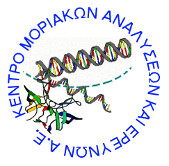EGFR
Epidermal growth factor receptor (EGFR), a receptor tyrosine kinase, is frequently overexpressed in non‐small cell lung cancer (NSCLC). These receptors play an important role in tumour cell survival and activated phosphorylated EGFR results in the phosphorylation of downstream proteins that cause cell proliferation, invasion, metastasis, and inhibition of apoptosis. Expression appears to be dependent on histological subtypes, most frequently expressed in squamous cell carcinoma but also frequently expressed in adenocarcinomas and large cell carcinomas. A much more important issue for patients with NSCLC is whether a relationship exists between EGFR expression and survival benefit with EGFR inhibitor therapy. This might disadvantage patients with negative or low EGFR expression who might benefit from EGFR inhibitor treatment as most trials involving EGFR blockade preclude patients with no EGFR protein expression.
Although EGFR plays an important role in maintaining normal cell function, dysregulation of EGFR signaling pathways contributes to the development of malignancy via effects on cell-cycle progression, inhibition of apoptosis, induction of angiogenesis, and promotion of tumor-cell motility and metastasis. EGFR is known to be expressed more abundantly in malignant than in normal tissue, including 40%–80% of NSCLCs. Among the various histologic types of lung cancer, increased EGFR expression is most frequent in squamous and large-cell carcinomas and least frequent in small-cell carcinomas. The role of EGFR in carcinogenesis led to the development and extensive evaluation of EGFR-blocking agents for cancer treatment.
Inhibiting EGFR action is of paramount importance in cancer treatment. Monoclonal antibodies (mAbs) and tyrosine kinase inhibitors (TKIs) have been developed and tested in clinical settings. So far, EGFR inhibitors like, cetuximab, panitumumab, etc. (mAbs) and gefitinib, erlotinib, lapatinib, etc. (TKIs) have clinical benefit.
Tumors bearing EGFR mutations can be treated with EGFR TKIs and improve survival to more than two years (Figure, Pao & Chmielecki, 2010). Drug effectiveness is limited by the acquired primary resistance to TKIs. In patients with lung cancer EGFR gene is often mutated in exons 18 to 21 that encode for the kinase domain. A point mutation in exon 21 (L858R), a small deletion in exon 19 that removes four amino acids (LREA) comprise ~90% of TKI-sensitive mutations. However, less common EGFR mutations exist and some, for example G719x and L861Q, appear sensitive to TKI therapy.
The aforementioned EGFR mutations are of great clinical value and are included in diagnostic gene-signature sets predicting tumor aggressiveness and resistance to chemotherapy treatment.


